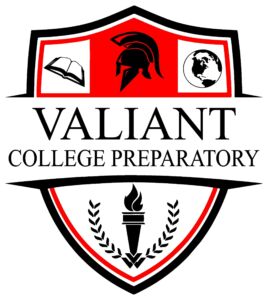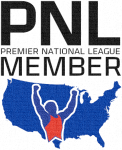Freshman English
OVERVIEW
English Language and Composition Course Syllabus
Welcome to English Language and Composition! I’m excited and pleased that you have elected to challenge yourself by participating in the rigors of this class, and I hope we can learn a great deal from each other. Let’s explore the “need to know” information you will need for success. This course is designed to satisfy the state of Arizona requirement for American Literature in addition to meeting the rigorous challenges set forth by the College Board. Therefore, the content of the course is based upon representative works by American authors. While learning about the development of American literature, students will enhance their critical thinking skills and expand their ability to write competently in various forms, including synthesis, argumentative and analytical essays. This course engages students in becoming skilled readers of prose written in a variety of rhetorical contexts, and in becoming skilled writers who compose for a variety of purposes. Both their writing and their reading should make students aware of the interactions among a writer’s purposes, audience expectations, and subjects, as well as the way genre conventions and the resources of language contribute to effectiveness in writing.
Reading involves not just understanding the words on a page but also understanding the author’s use of structure, style, syntax, language, and various other rhetorical devices and strategies. The readings for this class will be challenging, multi-layered, and, in some cases, an extension of the readings you have done in other classes. Be mindful that although some of the selections may be short, they have been selected because they offer many layers of meaning. Our readings will come from the seventeenth to twenty-first centuries and will cover a range of genres: poetry, short stories, drama, fiction, and non-fiction. You will be expected to read carefully and critically so that your contributions to our class discussions can be rewarding for us all. Reading assignments will, for the most part, be done outside of class, although we will also be reading passages in class for discussion.
Writing is a tremendous component of our class, and you will be expected to use proper grammar, mechanics, and organization. On-line, you will find some excellent grammar sites if you need to check on a rule. Little class time will be devoted to grammar and mechanics since you have been exposed to these topics over the years; however, I am always available to answer questions and help you if you cannot find the answer on your own. Because writing is not a static enterprise, we will have periodic individual and peer conferences to discuss your papers. Rewriting papers is not only allowed, it is encouraged because we learn more about our style and voice with each revision. If you have a question or need assistance with your writing, you do not have to wait for your individual conference since I am available to read over parts of your work at most any time. Short “mini-lessons” on such topics as sentence structure and type, transitions, organization, and other topics will be included in our writing sessions as needed. If you have any questions, please feel free to see me.
There are several different types of writing we will be undertaking. First is the reader response paper (or journal); no revisions are necessary on these papers because they are your thoughts and reactions to what you have read. I will read your responses and return them to you, but you are expected to keep these papers in your notebook as they may become the basis for an extended paper later on. Second is the rhetorical analysis paper where you examine how writers use characterization, symbolism, language, and other rhetorical devices to enhance theme and purpose. Third is the synthesis essay where you will synthesize information from various sources to defend, challenge, or qualify and argument. Lastly, is the argumentative paper (or open-ended response) in which you will take a stand on a given position and argue for or against it. Each nine weeks you will choose two of your best pieces to revise and rewrite to place in your
writing folder as full processed pieces. As part of our writing program, we will be developing stronger vocabulary skills based on the language of analysis and the individual works we read.
LEARNING GOALS
Upon completing the English Language and Composition course, then, students should be able to:
- analyze and interpret samples of good writing, identifying and explaining an author’s use of rhetorical strategies and techniques;
- apply effective strategies and techniques in their own writing;
- create and sustain arguments based on readings, research and/or personal experience;
- write for a variety of purposes;
- produce expository, analytical and argumentative compositions that introduce a complex central idea and develop it with appropriate evidence drawn from primary and/or secondary sources, cogent explanations and clear transitions;
- demonstrate understanding and mastery of standard written English as well as stylistic maturity in their own writings;
- demonstrate understanding of the conventions of citing primary and secondary sources;
- move effectively through the stages of the writing process, with careful attention to inquiry and research, drafting, revising, editing and review;
- write thoughtfully about their own process of composition;
- revise a work to make it suitable for a different audience;
- analyze image as text; and
- evaluate and incorporate reference documents into researched papers
DAILY REQUIRED MATERIALS
Medium blue or black ink pens (no other colored ink should be used on assignments) Pencils
Three-ring notebook with 12 dividers and loose-leaf paper Highlighters
Post- it Notes
Novels and Textbook (provided)
CLASSROOM EXPECTATIONS AND PROCEEDURES
Being Prepared for Class: Sharpen your pencil, get paper, writing utensils, books, etc. before class begins. When the bell rings, I am ready to start class and will not wait for you. Students are expected to use the rest room and get water before class begins.
Students will only be excused during instructional time in case of an extreme emergency. As soon as the bell rings, I expect the room to be quiet and everyone should be ready to begin class.
Turning in Work: Head your papers on the top right-hand corner. Be sure to write your name, the date, and the title of the assignment. Assignments that are turned in should be in pencil or blue or black ink only. All final drafts of essays MUST be typed in MLA format. You will only receive ONE COPY of each assignment so do not lose it as I will not replace it. You are responsible for knowing what work must be turned and by what day, so keep up with your class calendar and consult it frequently. You are also responsible for keeping track of whether or not you have turned something in. Parent Portal is a great resource to you; check it every day! You should never have to ask me what you made on an assignment or what you are missing due to your access to Parent Portal.
Late Work: Turning work in late is not acceptable behavior in an AP level class. If you fail to turn in your work on time for any reason other than being absent you will receive a ten point deduction IF the work is turned in the next day. Beyond that, late work will no longer be accepted. Work due on the day you were absent is expected to be turned in the day you return or it will be considered late and subject to the late work policy.
Graded Assignments: I will pass back graded papers frequently. Please keep track of your papers. Grades are updated frequently in Parent Portal. I expect you to utilize this tool on a regular basis to keep up with your progress in class.
Absences: Regular attendance is required for success in this class. When you return to school from an absence, YOU are responsible for obtaining and completing any make-up work within three days. In the event that you missed a test or a quiz, it is your responsibility to coordinate with me the times to make up the assignments. You should expect to come before school to make up missing tests and quizzes. If you fail to obtain your make-up work in a timely manner, you will be penalized for work that is late.
Cheating: I have zero tolerance for cheating. Any time you copy someone else’s work (with or without their permission) that is considered cheating. If you are caught cheating, you will receive a zero and your parents will be notified.
Tutoring: I offer tutoring on Tuesday mornings from 7:30 to 8:00 AM. Students who wish to attend tutoring need to give me notice at least 24 hours in advance.
Miscellaneous: Per the student handbook, the use of phones and other electronic devices (I-pods, MP3 players, game systems, etc.) is strictly prohibited during school hours. ALL electronic devices will be confiscated and turned into the office if they appear during class. The ONLY drinks allowed in class are bottled drinks that have closed tops. NO cans or cups with straws are allowed under ANY circumstances.
GRADING POLICY:
45%- Exams- (tests, essays, research projects, vocabulary logs, etc.)
25%- Quizzes (over reading, literary movements, grammar, rhetorical devices, etc)
20%- Daily grades (reading questions, post-its, graphic organizers, journals, reader responses, etc.) 10%- Homework (Multiple Choice Mondays, homework journals, Short Takes essay analysis, etc.)
COURSE OUTLINE
Recurring assignments:
Timed, In-Class Writing: On a regular basis, you will complete timed, in-class writing assignments. These assignments will consist of practice exams over synthesis, analysis, and argumentative writings. You will have 40 minutes to write these essays in class. Sometimes they will be unannounced. These essays will receive teacher and peer feedback and you will be given the opportunity to revise these to improve your grade.
Formal Writing: Each nine weeks you will write, at a minimum, one to two formal essays. These extended papers will be written and rewritten both inside and outside of class. They will receive teacher and peer feedback and will consist of an outline, rough draft, and typed final draft. All essays will be submitted in MLA format.
Research Projects/Presentations: As the majority of you will enter college at some point in the future, and as collaborative assignments and presentations have become de rigueur at the post-secondary level, you will be required to plan, research (evaluate, use, and cite primary and secondary resources), and present presentations (both individually and in groups) over various topics throughout the year. All source citations will be completed in MLA format.
Author Study Presentations: Each student will be assigned an author we will be studying over the course of the year. Students will research their assigned author to find, use, and cite both primary and secondary resources in order to successfully synthesize and create a multi-media presentation through which they will provide their classmates with the necessary background information and historical context for reading.
Vocabulary Logs: As you read, you will be required to identify unfamiliar words in the text. You will use this to create an individual vocabulary log that will be checked periodically throughout each unit. Each word will include the part of speech, definition in context, and an original sentence where the word is used correctly.
Post-Its: In addition to vocabulary logs, you will also be required to turn in reading annotations in the form of post-its. The requirements for these post-its will vary but examples include: one main idea and three supporting sentences per page, one use of a rhetorical device per page, summary of a passage, etc. These will be turned in and checked for a grade.
Multiple Choice Mondays: You will be assigned a reading passage every Monday and have all week to complete specific reading and writing activities over that passage. The next Monday you will answer the multiple choice questions over that passage. The homework you complete will be 50 percent of your grade and your multiple choice questions will be the other 50 percent.
Essay Analysis: You will spend time throughout the year assessing, evaluating, analyzing, considering, discussing, and learning from a variety of essays written by others. These will include AP exam essays released from the College Board, essays from Short Takes (provided), and essays written by your peers.
Reading Quizzes: Expect frequent quizzes over assigned reading material. These quizzes will assess understanding of reading, vocabulary, grammar, sentence structure, and rhetorical strategies.
Tests: Throughout the year, we will study our way through the great works of American Literature. Expect a test over these works at the conclusion of each literary movement we study.
Units of Study
- Introductory Unit (1 week)
- Review the approved College Board Syllabus and course expectations for AP Language
- Literary Terms Test
- Assign author study projects requirements and due dates
- Introduction to the AP Language and Composition test format
- Practice AP Multiple Choice Test
- Review the AP Scoring Guide expectations for all AP writing assessments
- Class discussion on summer reading novels: A Lesson Before Dying and In Cold Blood.
- Examine and discuss the summer reading essays: successes and needs for future writing:
- Review appropriate verbs to use in AP writing
- Review creating a thesis / thematic statement
- Students will review reading strategies and rules for discussion/debate.
- Introduce and define rhetoric and rhetorical appeals
- Unit 1: Early 1700s
THEME: Fear and Persecution in Early American Literature 1st Nine Weeks
Reading: Students will read and analyze the following texts in order to evaluate an author’s use of rhetorical strategies and techniques. Students will also evaluate the linguistic and rhetorical choices of all pieces- both fiction and non-fiction.
-
- Native American Creation Myths
- Excerpt from “Of Plymouth Plantation”- Bradford
- “To My Dear and Loving Husband,” “The Author to Her Book,” and “Upon the Burning of Her House”-
Bradstreet
-
- “Housewifery”- Taylor
- “Sinners in the Hands of an Angry God”- Edwards
- “The Crucible”- Miller
- “Speech in the Virginia Convention”- Henry
- “The Declaration of Independence”- Jefferson
Visual Images:
-
- “Massasoit”- Dallin
- “Portrait of James Badger”- Badger
- “Watson and the Shark”- Copley; Research connection
Writing:
-
- Reader response journals
- Annotations of reading
- Argumentative analysis of Taylor and Bradstreet
- Synthesis essay over Puritan treatment of Native Americans
- Rhetorical Analysis of “Sinners in the Hands of an Angry God”
- Argumentative essay of “The Crucible”
- Argumentative response to Henry’s speech and “The Declaration of Independence”
- Narrative-personal creation myth
- In-class timed writing based on released AP prompts
Major Tests:
-
- Literary Terms Test
- Native American Test
- Puritan Research Project
- Puritan Test
- The Crucible Test
- Author Study Research Presentations
- Practice AP multiple choice exams
❖ Unit 2: 1774- late 1800s
THEME: The Individual Versus Society: Exploring a New Frontier 2nd Nine Weeks
Reading: Students will read and analyze the following texts in order to evaluate an author’s use of rhetorical strategies and techniques. Students will also evaluate the linguistic and rhetorical choices of all pieces- both fiction and non-fiction.
-
- Walden– Thoreau
- “The Tide Rises, The Tide Falls”; “A Psalm of Life”- Longfellow
- “Thanatopsis”- Bryant
- “The American Scholar”- Emerson
- “I Like to See it Lap the Miles”; “The Brain is Wider than the Sky”- Dickinson
- “To a Locomotive in Winter”; “From Democratic Vistas” – Whitman
- “Commission of Meriwether Lewis”- Jefferson
- “Crossing the Great Divide” Lewis
- “Legend of Sleepy Hollow”- Irving
- “The Purloined Letter”-Poe
- “The Minister’s Black Veil”- Hawthorne
Visual Images:
-
- “Westward the Star of the Empire Takes Its Way”- Melrose
- “I at Length”- Rackham
- “Separation”- Munch
- “Study of a Wood Interior”- Durand
Writing:
-
- Reader response journals
- Annotations of reading
- Thoreau and Emerson synthesis essay
- Rhetorical Analysis of selected poems
- Irving/Bryant argumentative essay
- American Visions synthesis essay
- Gothic narrative
- In-class timed writing based on released AP prompts
Major Tests:
-
- Author Study Research Presentations
- Practice AP multiple choice exams
- Romanticism/Transcendentalism Test
- Gothic/ Anti-Transcendentalism Test
- Gothic/Anti-Transcendentalism Research Project
❖ Unit 3: 1863- 1920s
THEME: Reconstructing the American Dream 3rd Nine Weeks
Reading: Students will read and analyze the following texts in order to evaluate an author’s use of rhetorical strategies and techniques. Students will also evaluate the linguistic and rhetorical choices of all pieces- both fiction and non-fiction.
-
- The Great Gatsby– Fitzgerald
- “Nobel Prize Acceptance Speech”; “A Rose for Emily”- Faulkner
- “A Pair of Silk Stockings”- Chopin
- “O Captain, My Captain”- Whitman
- “What to the Slave is the Fourth of July?”- Douglass
- “The Gettysburg Address”; “Second Inaugural Address”- Lincoln
Visual Images:
-
- “Near Andersonville”- Homer
- “Wounded Soldiers in Hospital”- Brady
Writing:
-
- Reader response journals
- Annotations of reading
- Faulkner/Chopin argumentative essay
- Rhetorical Analysis over Realism piece
- The Great Gatsby argumentative essay
- In-class timed writing based on released AP prompts
Major Tests:
-
- Author Study Research Presentations
- Practice AP multiple choice exams
- Realism, Naturalism ,Regionalism Test
- Modernism/ Gatsby Test
- Gatsby Group Research Project
❖ Unit 4: 1930s to present
THEME: Modern Times, Modern Issues 4th Nine Weeks
Reading: Students will read and analyze the following texts in order to evaluate an author’s use of rhetorical strategies and techniques. Students will also evaluate the linguistic and rhetorical choices of all pieces- both fiction and non-fiction.
-
- “Freedom Train”- Hughes
- “America”; “If We Must Die”- McKay
- “The Wise”; “From the Dark Tower”- Cullen
- “A Poet to His Baby Son”- Johnson
- “I have a Dream”; “Letter from a Birmingham Jail” – King
- “The Oppressed Are Shaking Off the Shackles”- Malcolm X
- “Remarks on the Assassination of Martin Luther King”- Kennedy
- “The Last Lecture”- Pausch
Visual Images:
-
- “Father Knows Best”- Still image from television show
- “An Old Idea”- Cartoon published in the Cleveland Plain Dealer
- Martin Luther King, Jr Photo Gallery- History.com
Writing:
-
- Reader response journals
- Annotations of reading
- Post-Modernism argumentative essay
- Rhetorical Analysis of Harlem Renaissance text
- Current Issues synthesis essay
- Personal Essay- Last Lecture
- In-class timed writing based on released AP prompts
Major Tests:
-
- Author Study Research Presentations
- Practice AP multiple choice exams
- Harlem Renaissance Research Project
- Civil Rights Movement/Post-Modernism Test



